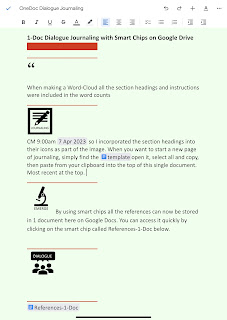Millbay Residency
Our Millbay Residency on place-making has been gently moving forward during the colder months of early 2023 but late in April, we plan a longer fieldwork activity starting at The Plot on Union Street, Plymouth UK, then heading down the new Millbay Boulevard. In this post to the magazine blog, Travel Writers Online, I do not want to give away too much about our mapping so far. I do want to concentrate on the repurposing work I’ve done using Google Docs, Google Drive and the Dialogue Journaling template from our textbook, Travel Writing for Tourism and City Branding (2023) from Routledge.
Google Docs on Google Drive
Back in February, after a message from Kai-Sean at the University of Tennessee, who had just bought our textbook from Routledge for travel writers, I made the journaling templates available for free download. They are available in Microsoft format for OneNote and for WORD to share with colleagues on OneDrive. I also created a Google Drive and Google Docs version for writers and researchers who do not have access to the subscription service of Microsoft via their university or company. The ideal implementation in Microsoft is to use Microsoft Teams and create what Microsoft call a PLC Notebook, in which to use our templates. Hugues has done this in our research on platforms in university teaching and learning.
I call my new prototype template for free Google accounts, ‘1-Doc Dialogue Journaling with Smart Chips on Google Drive’. As we begin to write in the field I wanted the whole team to be working in the same document. However, the new layout does still preserve the idea that you start a new page for a new idea. This seems similar to the way that Microsoft OneNote refers to individual notes as pages but my layout in Docs attempts to offer more integration with concepts from Knowledge Management. The pages in 1-Doc are iterations of the template with its sections headed-up with the by now familiar icons. I suppose I should now call these the journaling iterations not pages, but let’s see if that name works well in practice.
Smart Chips in Google Wordprocessing
Those familiar icons have been improved, too. Their text-labels are now incorporated into the graphic element. Why? Because when we ran word-cloud analyses on the journaling so far, the only keywords that appeared in the cloud were the labels from the sections of the many, many templates we had used. On a knowledge-based platform, the keyword tokens must not be mixed with the platform’s chrome.
I started using smart chips earlier this year, although the product was announced in February 2022 by Vishnu at Google in New York. Smart chips meant that I was able to put the template page, the ji (journaling iteration) in a file on its own, and smart-chip it with an @ in the main Google Doc where everyone’s journaling is shared. When a researcher wants to start journaling a new idea, they can find the ji-template with less fuss.
Simply select all and copy, then paste from your clipboard into the top of the one, single shared document. Our most recent journaling then sits at the top. We will pilot this design during our Millbay Residency fieldwork in April 2023. Instructions can be left in one of the journaling iterations, which will gradually be shifted further down the document as new journaling is added at the top.
Making and Storing References to Books and Academic Articles when Journaling
Thanks to smart chips, too, all your references can now be stored in 1 document also on Google Docs. You can access it quickly by clicking on the smart chip called References-1-Doc. This removes clutter from each ji (journaling iteration) and avoids duplication of effort if your material is already referenced in the single, shared file. Further, it removes book titles from any word cloud analysis you want to run.
We hope, by using a free platform for dialogue journaling that more people will find it easier to join in the dialogue. It works better with a Google gmail account, again, which is free. If you run a business down in Millbay, Plymouth UK and want to join in the dialogue, or would like us to come along and see you during the residency, you can get in touch from any of the social media channels on the About page.
If you would like to download all our free templates for both Microsoft OneNote and my new Google Drive + Docs implementation then you can find them all on our website at the Toureme button below:
I just want to sign off with a mention for the Café Bené, our first recommended stop for travel writers in Millbay where we enjoyed a quick brunch of scrambled egg on toast, with cappuccino. Full review on Google Local Guides in Google Maps, please click on the icons below:
_______________________



Comments
Post a Comment
Thank you. Please do a SHARE too...